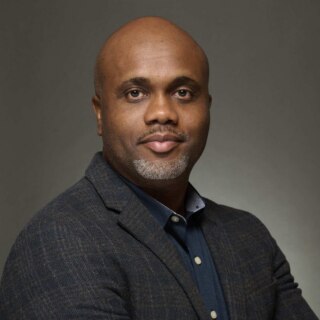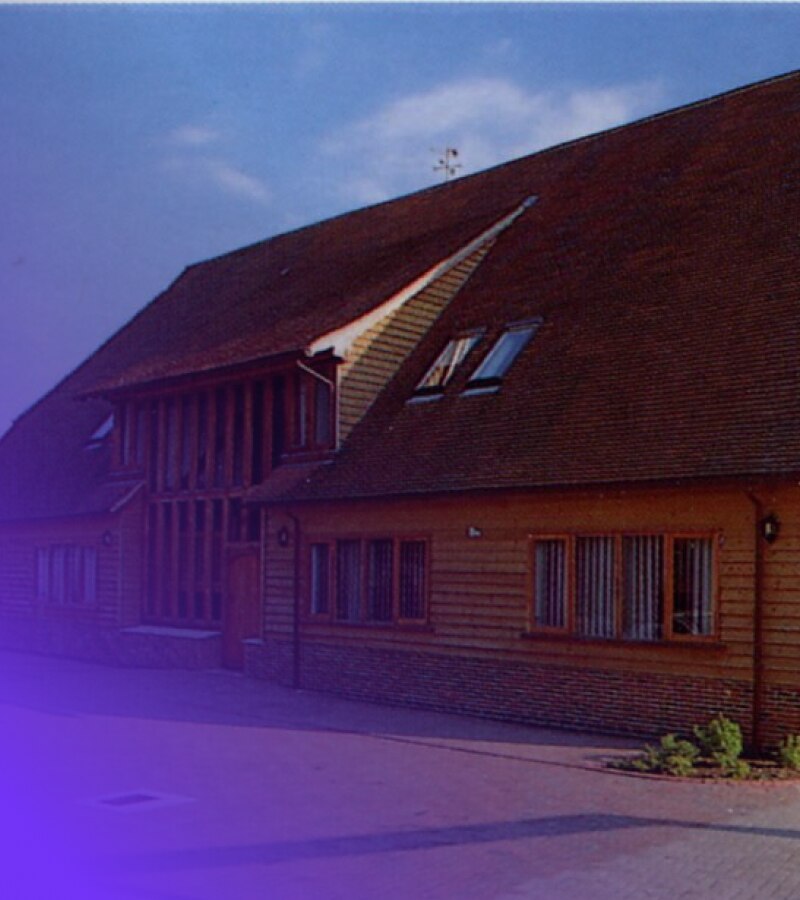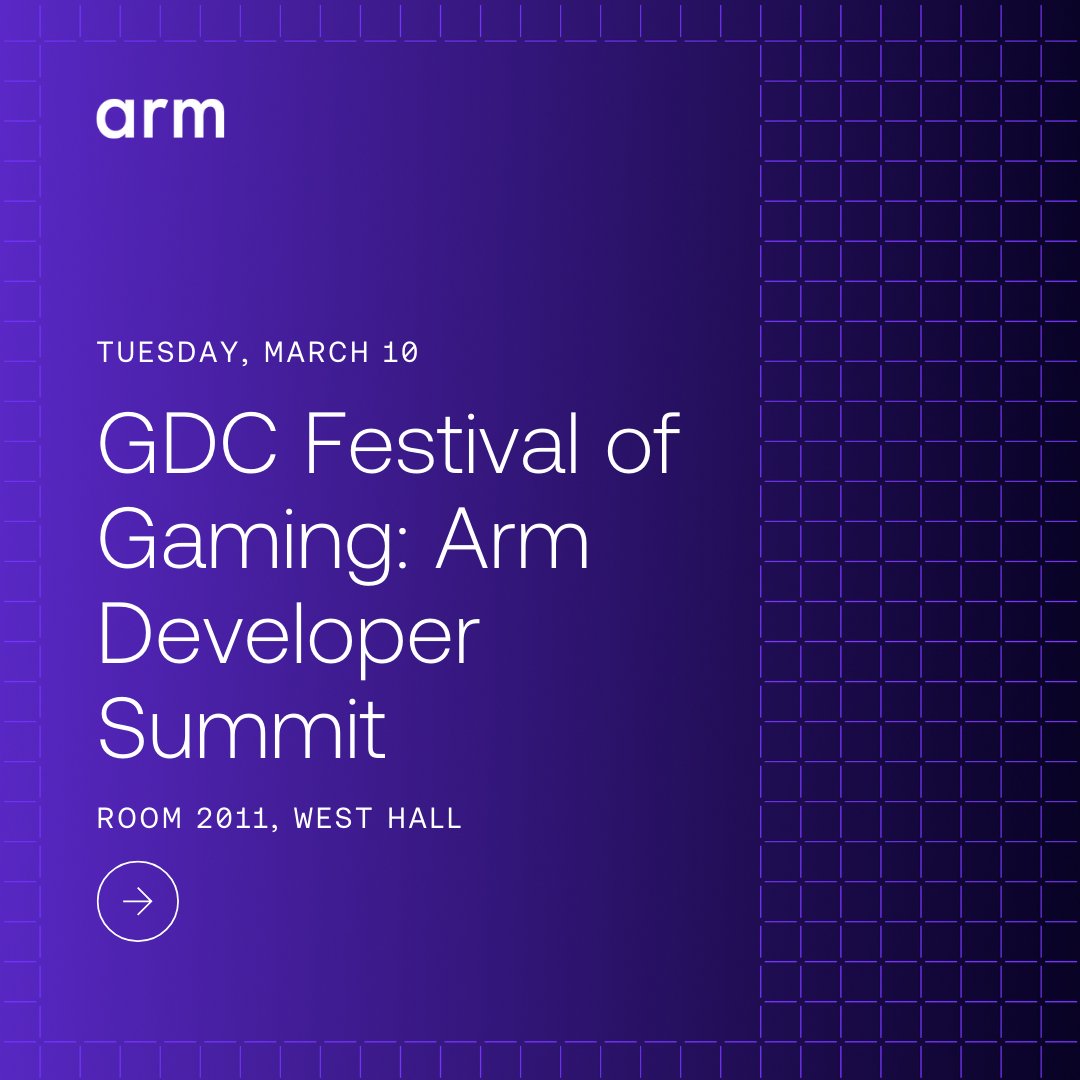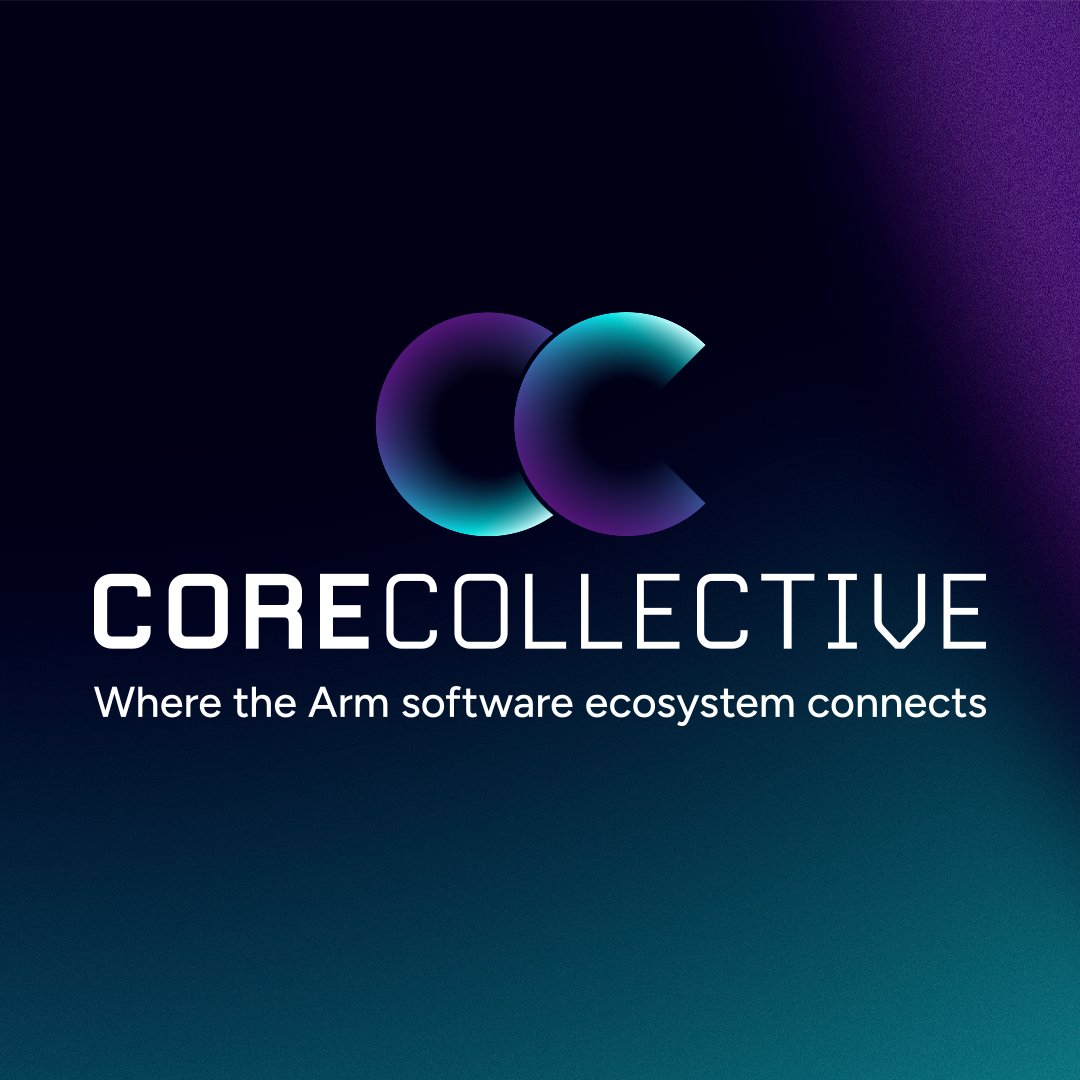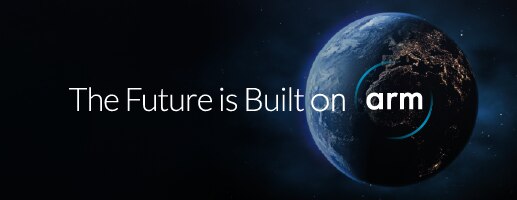Arm Opens Five New Labs in Ghana to Inspire Future Tech Innovation Across Africa
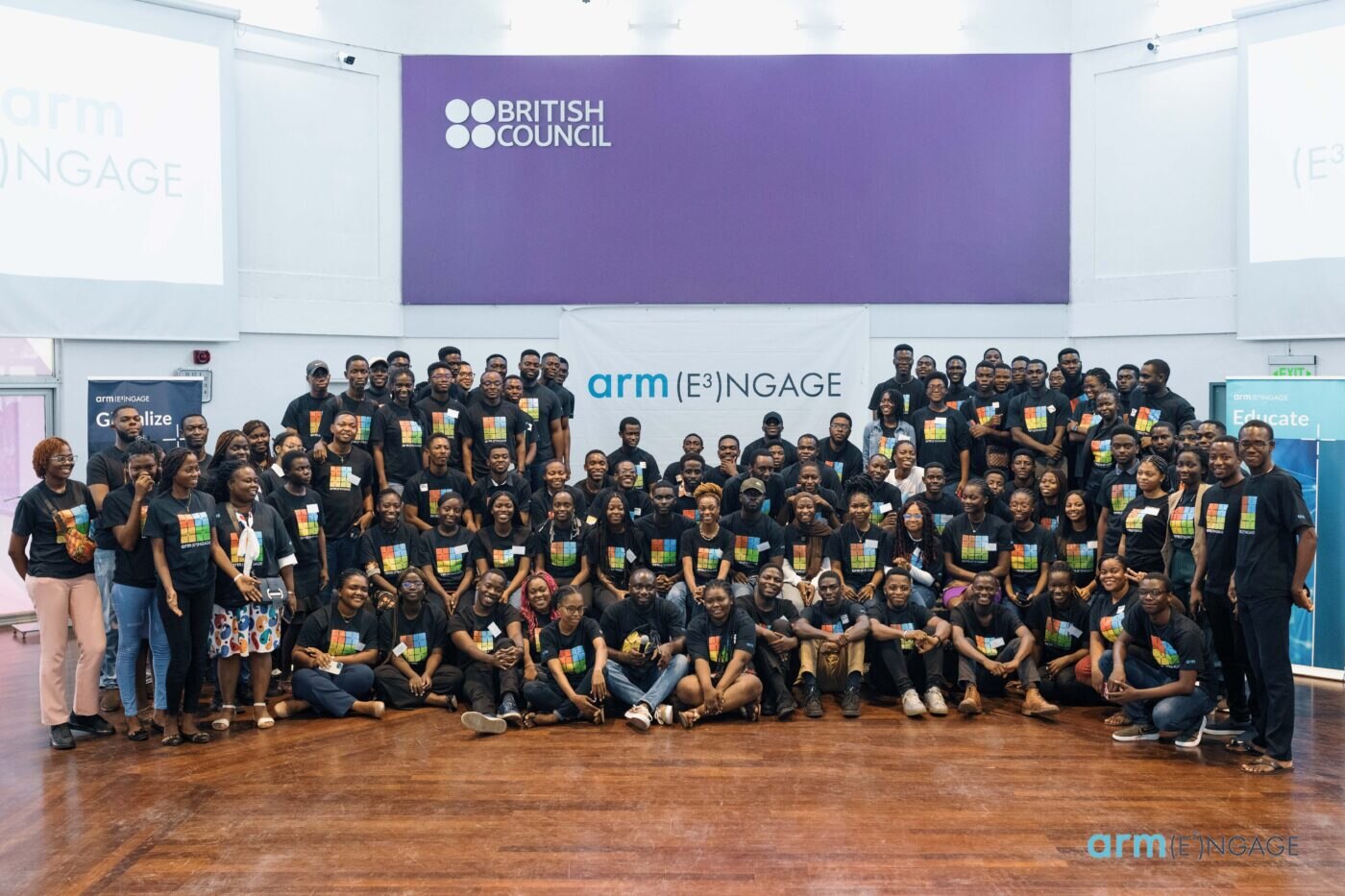
About a year ago, I was proud to launch Arm’s first(E3)NGAGE lab in South Africa, as part of Arm’s support for developer communities and digitization initiatives across emerging markets, starting with countries in Africa. Through these labs, we plan to engage, educate and cultivate local technology ecosystems on the continent, with easier access to Arm tools and technology being a central part of these strategies.
Since the inception of our (E³)NGAGE lab model, we have seen tremendous progress across targeted program areas. This has involved new partnerships, developer engagement events, university programs, and industry initiatives. Our notable ecosystem successes have also accelerated Arm’s ambitions around launching additional labs, as we expand across the continent.
The new (E³)NGAGE labs in Ghana
This year our communities of practice, which include academia, developers, start-up incubation and industry acceleration that support the design of Arm-based technology solutions, are growing into Ghana. We chose Ghana as the country to expand our African (E³)NGAGE labs due to its vibrant network of technical universities with strong engineering faculties, and a growing community of start-ups, developers and students. Additionally, Ghana presents Arm with an enabling public sector environment, with government partners that align with our vision to deliver energy efficient, secure and cost-optimized technology.
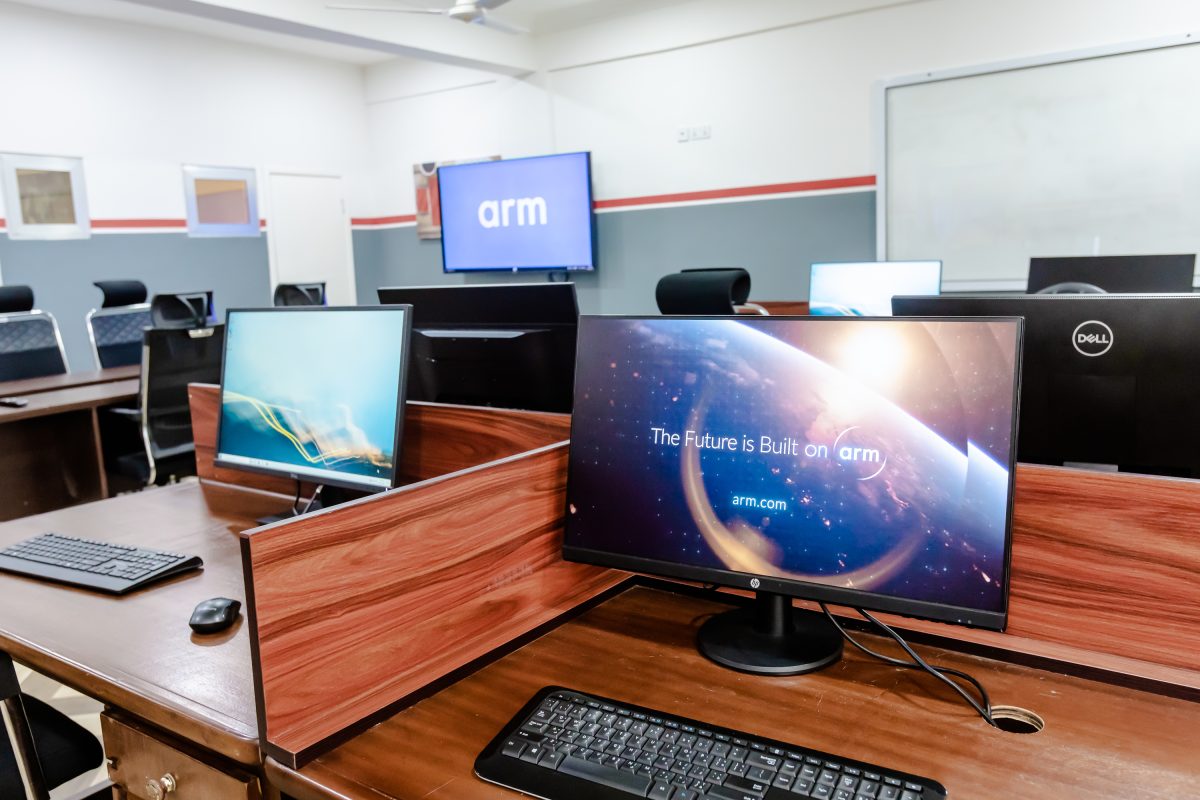
The five new labs we launched in Ghana this month are located at centers in educational and entrepreneurial environments across the country, including some of the country’s leading universities. A standard (E³)NGAGE lab is equipped with tools, hardware, testing and training equipment from the Arm ecosystem, and is open to ecosystem stakeholders within the community.
The labs have been set up in partnership with the following institutions and organizations:
- Kwame Nkrumah University of Science and Technology (KNUST)
- University of Cape Coast (UCC)
- Academic City University College (ACity)
- Makersplace Ghana
- Office of Global Partnerships, US State Department.
Travelling with the US government delegation
Due to Ghana’s role as a regional champion for climate change which supports innovations around climate tech and sustainable product and services, the country was selected as part of the 2023 edition of the US State Department’s Partnership Opportunity Delegation (POD) initiative, with Arm being part of the delegation. The POD initiative focuses on cultivating US-Ghana partnership opportunities and providing unique insights and networks for entrepreneurial and innovative technology solutions, specifically in relation to climate change. Alongside my colleague Rod Crawford, I was thrilled to unveil the new labs as part of our visit to Ghana as delegates of this outstanding initiative.
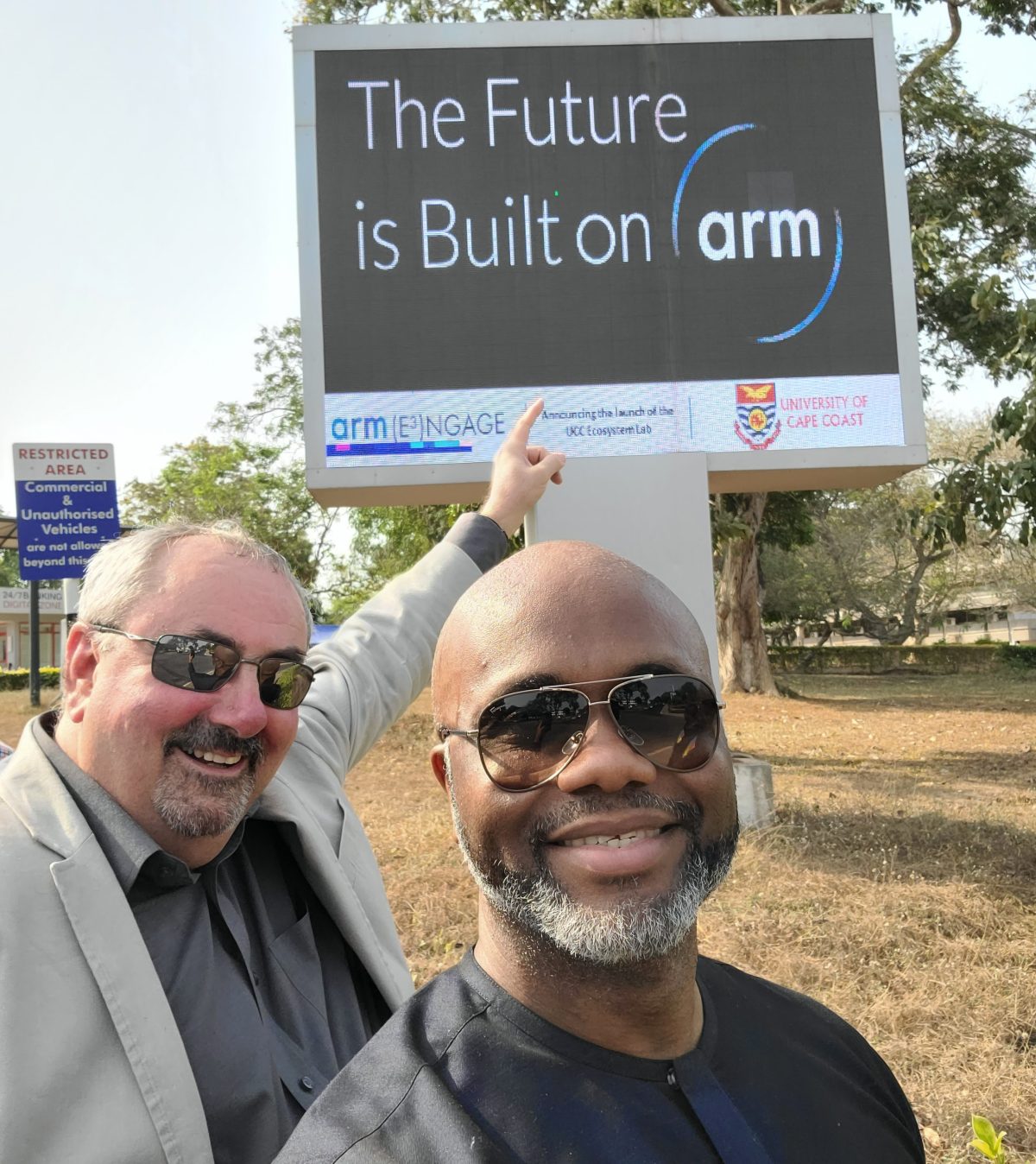
This followed Arm officially joining the Connecting Climate Entrepreneurs (CCE) program of the US State Department in August 2022. As a technology anchor to the program, we offered our shared expertise in supporting a network of sustainability hubs, education and training programs, innovation showcases and ecosystem partnership opportunities. Another key tenet of the CCE program was to ensure that selected innovators and entrepreneurs were developing locally-relevant climate-tech solutions, on Arm.
As part of the CCE program, I was personally honored to unveil the first Arm-CCE Sustainability Labs in the world. The lab was launched at Academic City College (ACity) and is set to deliver on the following objectives:
- Support the adoption of Arm technology and Sustainability training with ACity.
- Grow developer learning communities across all user groups within ACity and support local stakeholders towards bringing Arm-enabled sustainability products and solutions into effective action.
- Manage startup incubation programs towards launching a network of ACity-backed climate entrepreneurs that are building on Arm technologies.
The whole trip around Ghana was an amazing opportunity to see first-hand the value of Arm’s work in Africa. Our work in emerging markets embodies our strategy of building and growing communities across the continent and giving them the tools, training and technology to build innovate tech solutions on Arm. This, alongside the talent of all the different tech communities, was on display at all the labs we launched, and it was a pleasure being able to show the US government delegation what Arm is achieving in the region.
A year of incremental progress
Between the opening of the first (E³)NGAGE lab in South Africa in March 2022 and the new labs in Ghana a month ago, there have several notable achievements across Africa that showcase the delivery of Arm’s value in the region. This is leading to incremental growth in Arm-based user groups and developer, start-up and education-based networks.
Here are just some of the fantastic results from past year:
- User groups within the Embedded Learning Challenge, which enables engineers to gain access to a variety of Arm-based microcontrollers (MCUs) for hands-on experience and practical experimentation, have grown over 1000 percent.
- There are now over 3,000 developers across Africa.
- 10 new regional developer relationships have been established with Arm partners and regional hubs, with new vibrant meetup groups creating local networks with multi-tiered developers building on Arm. During the next year, I will be providing more information about these groups and the Arm-based solutions that they’re building.
- Rapid growth in community engagement and Arm-based user groups across Africa, with community collaborations with Google, Oracle, AWS, AI for Good and TinyML.
The Embedded Learning Challenge
The Embedded Learning Challenge has experienced phenomenal growth across Africa, as it convenes unique groups of Embedded Systems Engineers from leading technology ecosystems and communities. Alongside the hands-on experience of using Arm-based MCUs, the initiative has enabled collaboration on projects with like-minded enthusiasts and learning curriculum from Arm Education.
The rise of TinyML
The Embedded Learning Challenge has also fueled the growth of TinyML communities across Africa, with this growing to over 1,000 members. Arm is now leveraging a rich ecosystem featuring TinyML developer groups, and we are increasing support for the African TinyML community through tools, training and knowledge resources.
Working with partners
We have also been involved in various collaborations with key Arm technology partners to support the growth of technology in Africa. This includes Arm Virtual Hardware initiatives with Oracle that aim to attract open-source developers, researcher universities and industry partners to run their compute workloads on Arm and contribute to the Arm ecosystem. This is piloting in Morocco and targeting research universities that want to accelerate Arm development. Furthermore, we are working with Google on its Open Buildings Project in Ghana to target research opportunities for GIS, IoT, and mobile core networks, while expanding the Arm-Google partnership in Africa.
Future-ready infrastructure
With the International Telecommunication Union (ITU) and other related ecosystem partners, our commitment to the AI For Good network continues to prove a bold resolve towards building connections with innovators and experts and bringing communities together to advance sustainable development goals (SDGs) using AI. We see direct links between our local lab communities and the global ecosystem of AI practitioners that are building sustainable futures.
We also worked with the GSMA during this past year and joined a global network of partners to produce the inaugural 5G in Africa Report. The publication was launched at the first ever Mobile World Congress (MWC) Africa and featured some of Arm’s leading infrastructure initiatives including our 5G Solutions Lab and digital divide solutions within Project Magma.
Educating African students
Alongside support for the start-up and developer ecosystem, the Arm School Program for Young Learners continues to expand across Africa, with this delivering world-class STEM exposure to students. A growing network of K-12 partners now actively support the Arm Schools Program in Africa through providing educational tools and resources, including Raspberry Pi, Micro:bit, Sparkfun Electronics and Arduino. We are also signing up an increasing number of African universities to the Arm Education initiative, which provides universities with an Arm Education curriculum and Arm-based technology for students.
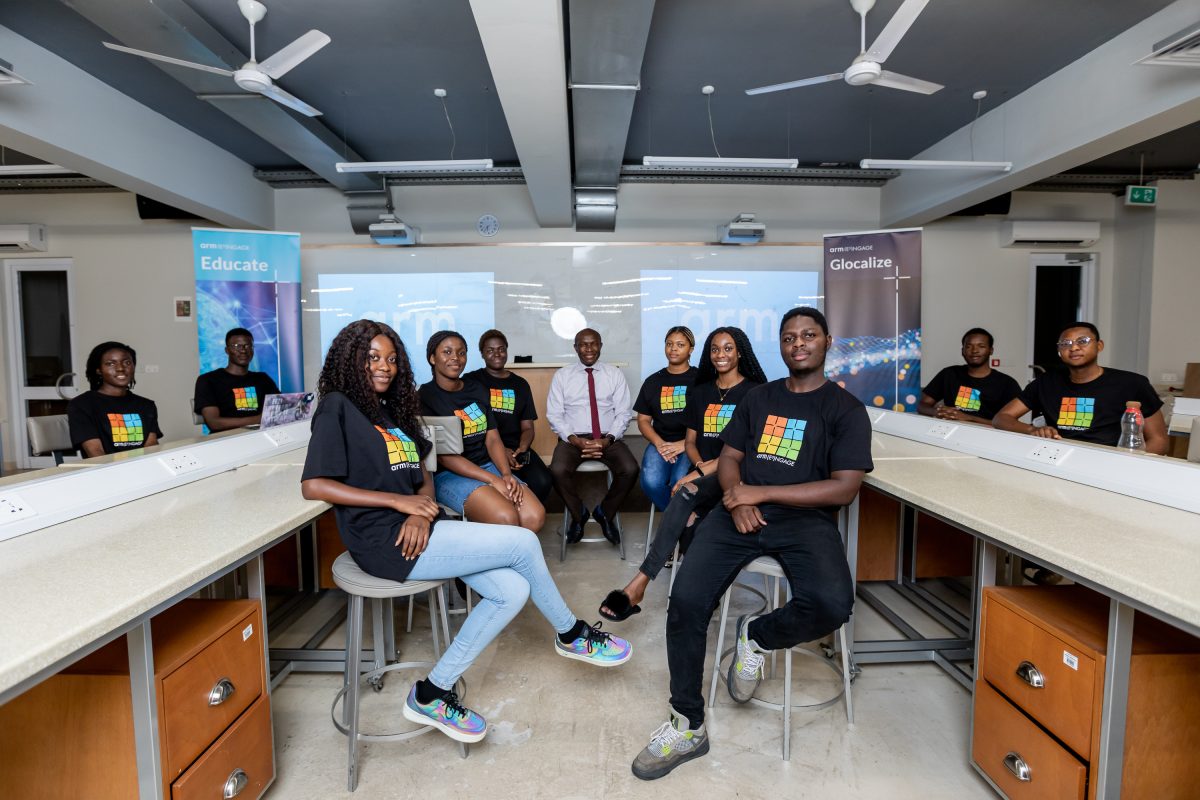
And it’s not just our own education programs and initiatives where we take an active interest. In Ghana, Arm is supporting Makersplace Ghana, a technology-driven learning and skills development organization with a primary focus on K-12 learners in the country. The organization has served as vital program partners for Arm Education, as well as our wider tech partners including Arduino and Micro:bit. In South Africa, our work continues with the Council for Scientific and Industrial Research (CSIR) and their affiliated K-12 training entities. This has led to over 12,000 Micro:bits being procured to train K-12 students across six South African provinces in the past year.
Due to all the initiatives outlined above, over 20,000 Arm-based kits have been procured across Africa, with over 700 teachers and trainers on-boarded to teach students, all within the past year.
Regional talent pools and technical expertise
As we build out our lab networks and expand student clubs, university curriculum, developer networks and startup ecosystems on Arm, the future looks very bright for technical expertise in the region. The aspirations of an entire generation of technologists are evident within the vibrant meetup groups, WhatsApp knowledge groups and developer community chatrooms. It is my hope that this will transform into regional pools of talent, as well as professional development opportunities for these targeted adopters of Arm based technologies, both now and in the future.
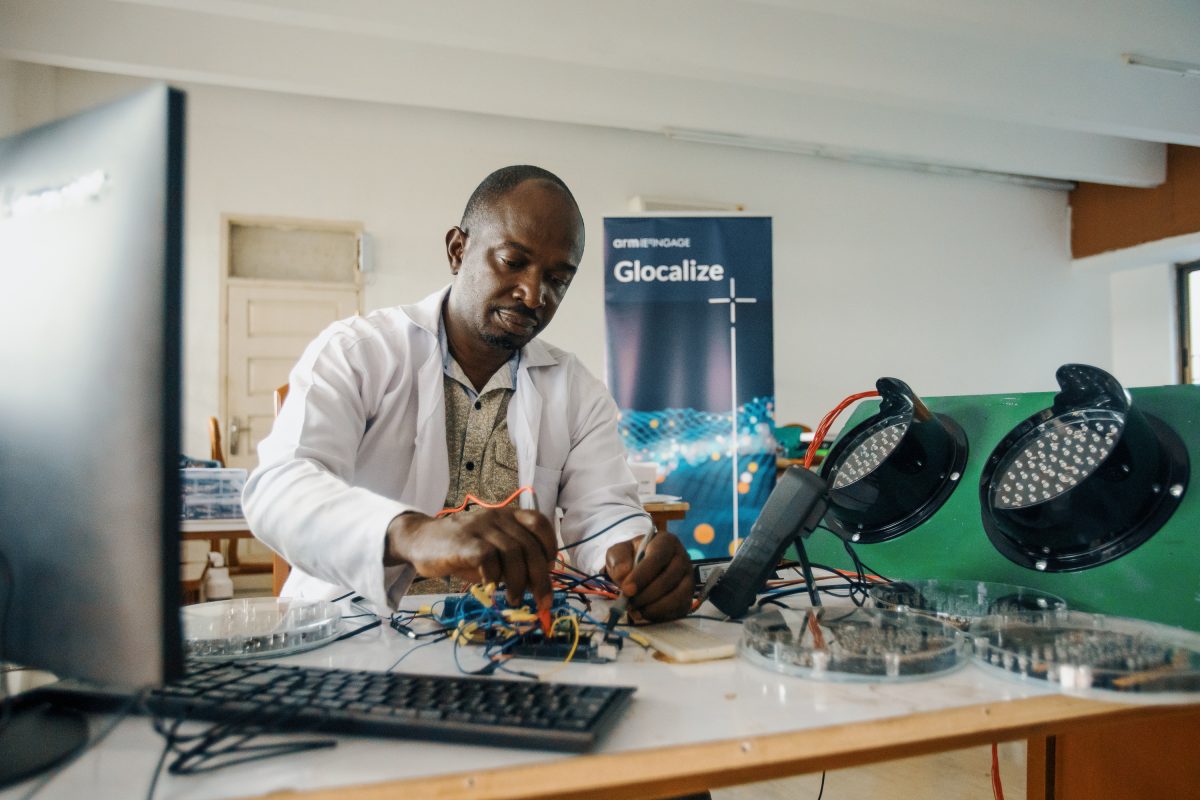
Upcoming plans
Despite all of the work that has happened during the past year, we are not standing still and have various plans to continue to grow the Arm ecosystem across Africa in the next few years. For the start-up and developer ecosystems, we are growing the reach of the Embedded Learning Challenge footprint, with new communities and user groups across five more countries in Africa. We are also continuing to support projects and programs geared towards helping companies create solutions built on Arm-based technologies. With developers, we are increasing Arm-based developer resources and continue to amplify our own developer tools via local events, programs and partners. Finally, on education, we are expanding University partner networks to support the growth of Arm Education resources.
Elevating African tech ecosystems, on Arm
The long-term benefits of our (E³)NGAGE labs have far reaching implications across a variety of stakeholder interests. We see Africa as an area of huge untapped potential that will drive future growth in the Arm ecosystem, as well as supporting communities across the continent through new technological innovation. Our continued commitment to the region and key targeted audiences – whether that’s those involved in start-up incubators, education or the developer community – also aligns with our mission to build the future of computing, on Arm. Together. For everyone.
Through the strategic expansion of lab and community networks across emerging markets, we are ensuring that the shared values of Arm remain inclusive of all of our targeted communities – everywhere compute happens.
Any re-use permitted for informational and non-commercial or personal use only.
